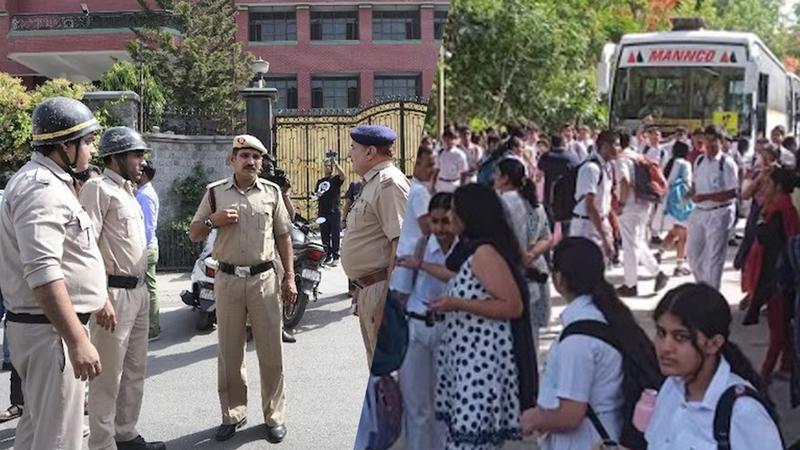Published 13:18 IST, May 1st 2024
Bomb Scare In Delhi-NCR Schools: How To Prepare Children For Such Unexpected Events
Several schools in Delhi-NCR revived bomb threats on May 1 which triggered a panic response in children. Know how you can teach kids preparedness in such events

Visuals outside a Delhi school after receving bomb threats | Image:
ANI
- Listen to this article
- 5 min read
Advertisement
12:39 IST, May 1st 2024



